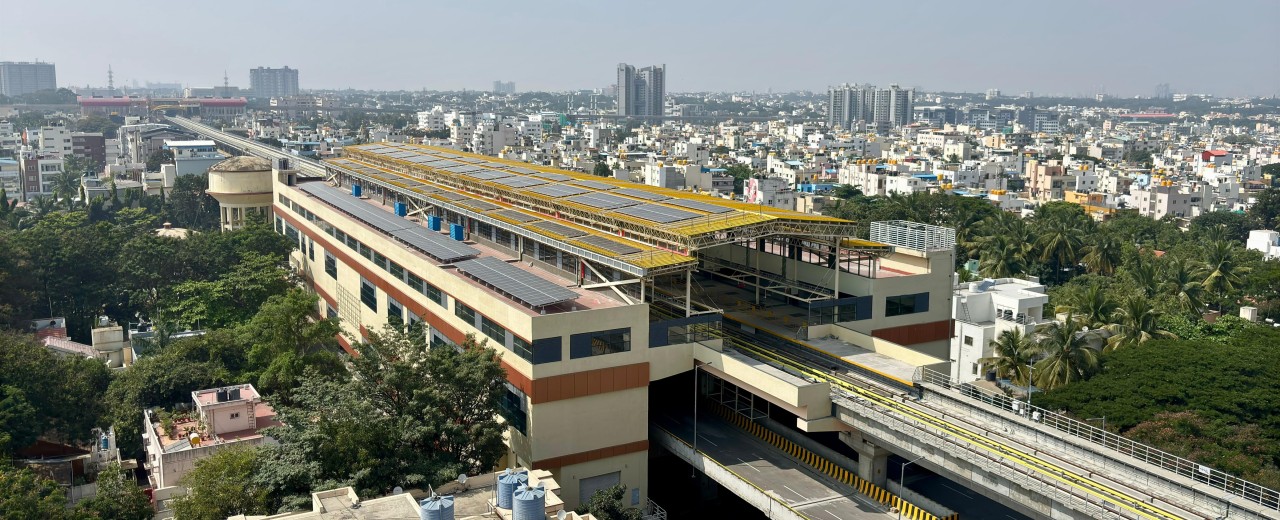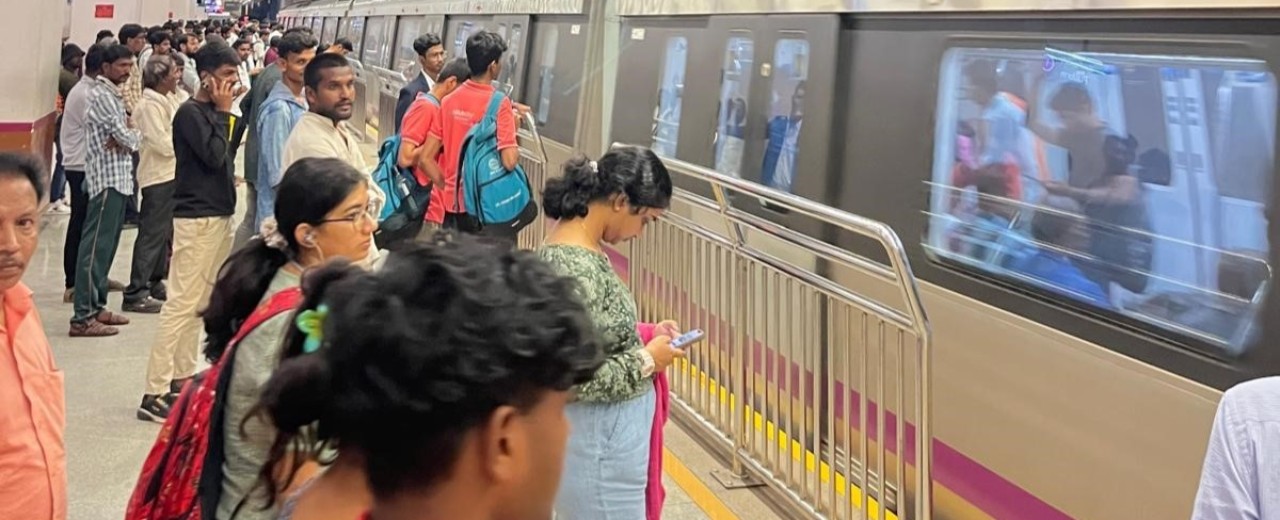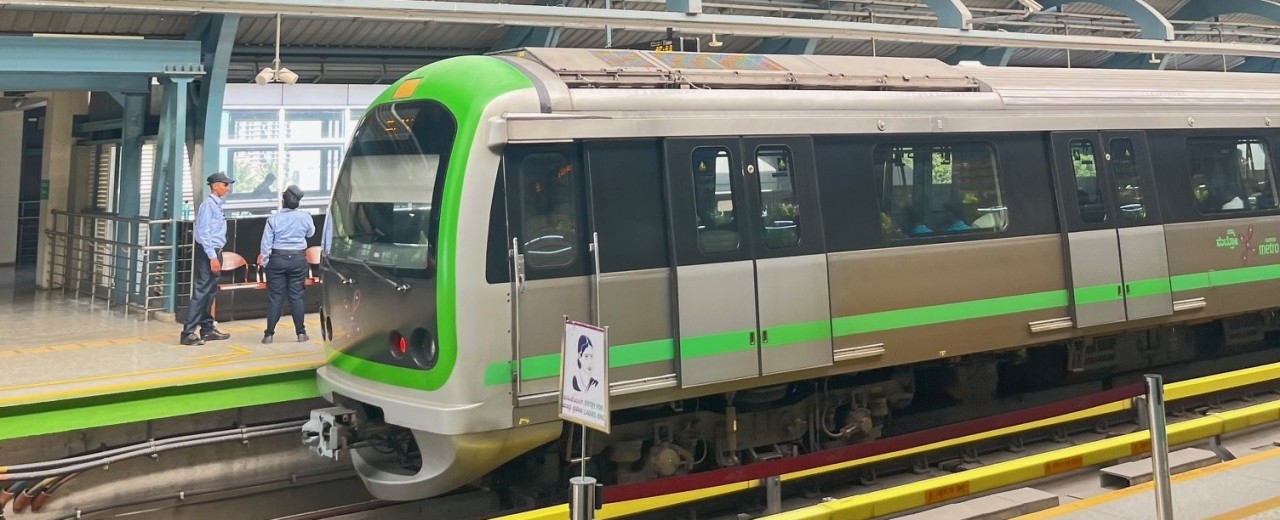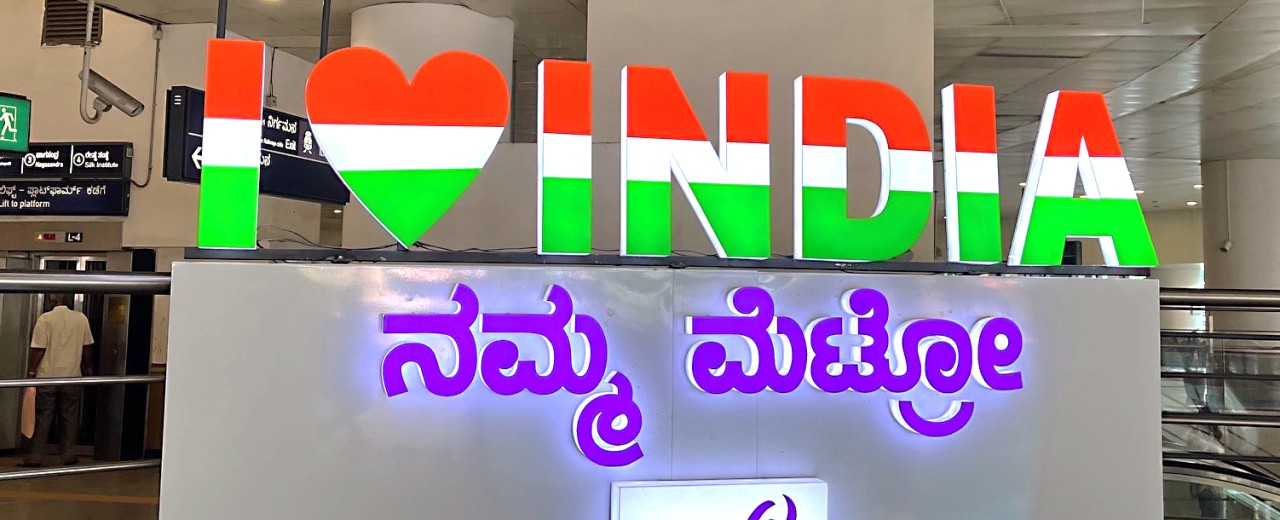News from 2025-08-11 / KfW Development Bank
Modern urban transport in India with German know-how
First section of phase 2 of the Bangalore Metro cofinanced by KfW officially opened

In Bangalore, India, Prime Minister Modi officially opened phase 2 of the urban metro system, which was expanded with German participation, with the so-called Yellow Line (19 km with 16 stations) – a milestone on the road to sustainable and modern local transport solutions in the booming, densely populated megacities of the subcontinent.
Bangalore, India's third-largest city, has experienced population growth over the past ten years that has pushed the city to its limits: from ten million in 2015, the number of inhabitants has risen to over 14 million in the current year, an increase of more than 40 per cent. Road traffic is correspondingly congested: commuters spend several hours a day in the city's agonising traffic jams; the impact on the environment, air quality and the health of many people is also dramatic.
The phased expansion of the metro, in which German and European railway industry companies are also involved, is providing relief. Financed by a loan from KfW, the first partial opening of phase 2 now marks another important step for Bangalore towards sustainable, integrated mobility. The expansion of the urban rail network, the construction of new stations and better connections to other modes of transport such as buses and rickshaws are creating an environmentally friendly, cost-effective and faster alternative to cars. This is improving the quality of life in Bangalore and enabling people to benefit from greater economic and social participation and increased equality of opportunity in everyday life.

Shaping the future of mobility in Bangalore
The project is being financed by a promotional loan from KfW Development Bank on behalf of the German Federal Ministry for Economic Cooperation and Development (BMZ) in the amount of EUR 340 million. In addition to KfW, other donors are involved in the expansion of the metro, including the Agence Française de Développement (AFD), the European Investment Bank (EIB), the Asian Infrastructure Investment Bank (AIIB) and the Japan International Cooperation Agency (JICA), which are implementing the project in close cooperation with the public transport company Bangalore Metro Rail Corporation Limited (BMRCL).
German and European companies in the railway industry also play an important role, contributing high-quality components and products. With their expertise and innovative strength, they are helping to make the megacity efficient and sustainable in terms of mobility, while also meeting global challenges such as climate change.

An integrated transport concept with high connectivity
Phase 2 – another section is expected to open next year – will extend Bangalore's metro network by a total of 75 kilometres. In addition, 61 stations will be built in strategic locations for optimum accessibility. The new lines connect central urban areas, residential areas, business districts in the IT sector and structurally weak neighbourhoods, thereby improving mobility within the city. In addition, connections to other high-performance modes of transport in Bangalore will be facilitated, e.g. transfers to buses and commuter trains.
According to initial estimates, passenger numbers on the metro in the Phase 2 sections will grow to over 1.3 million passengers per day. This will not only reduce the pressure on public transport, but also the impact on the climate and the environment: CO2 savings are estimated at up to 1.4 million tonnes per year. Pollution from nitrogen oxides and particulate matter, which exceeds WHO limits in many places, will also be significantly reduced. This is a major benefit for the health and quality of life of the people of Bangalore, where the modern transport link is gratefully accepted.


Share page
To share the content of this page with your network, click on one of the icons below.
Note on data protection: When you share content, your personal data is transferred to the selected network.
Data protection
Alternatively, you can also copy the short link: https://www.kfw-entwicklungsbank.de/s/enzBWrMC.DSDA
Copy link Link copied